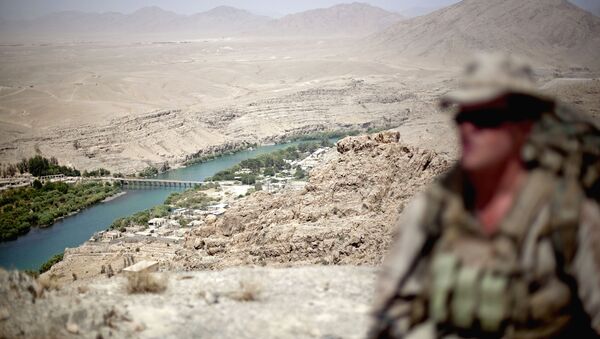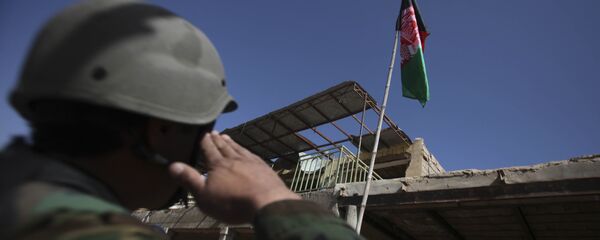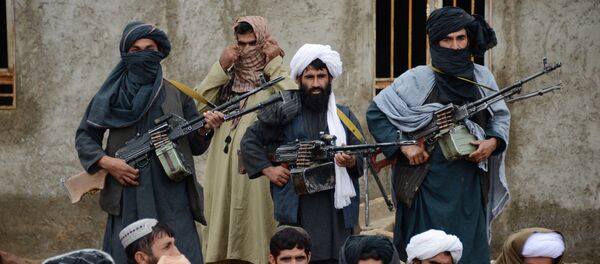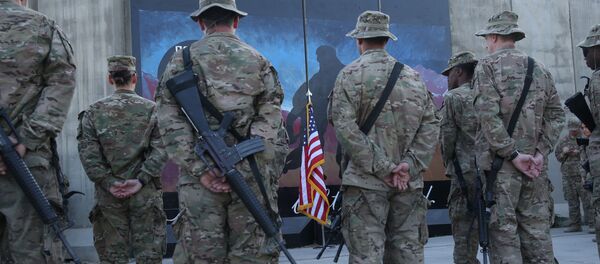"The US strategy in Afghanistan is a complete failure. So why are we still there?" Thrall asks.
"The reason for the decision, on the surface, appears to be Obama's desire to keep up the pressure on the Taliban to end their insurgency and accept a political settlement," the journalist suggests. "But when considered in light of fourteen years of intense military efforts, the loss of thousands of American lives, trillions of dollars spent and public support for withdrawal, this explanation falls flat."
"The real answer," Thrall suggests, "stems from three fundamental errors of judgment by President Obama."
Reason #1: US Presence in Afghanistan Makes the US Less Safe, Not More Safe
"Let us first dismiss the idea that the US has stayed in Afghanistan for reasons of national security," the analyst writes. "For Obama and others who advocate staying, the endgame revolves around the argument that keeping a lid on Afghanistan is necessary to prevent future attacks."
"Sadly, this argument is a straw man. If the United States had wanted to create new extremist groups, encourage the use of terrorism and destabilize the Middle East, it could hardly have done better than invading Afghanistan (not to mention Iraq), removing the Taliban government and unleashing civil conflict on a massive scale, then leaving thousands of American troops to ensure that the United States got caught in the middle of the violence."
"Since 2001," Thrall recalls, "the number of Islamic extremist groups has skyrocketed by 185%. The number of terrorist attacks worldwide mushroomed from 1,878 in 2001 to 11,952 in 2013. The notion that a longer stay in Afghanistan will reduce the terrorist threat is a fantasy."
"By keeping the United States in Afghanistan, Obama has fallen prey to what psychologists call the 'zero-risk bias'. This term describes people's tendency to try to reduce a small risk to zero rather than try to make more significant reductions in larger risks. Despite 9/11 and a handful of other successful (but much smaller) attacks, the overall threat of terrorism against the United States is very low, and most of it has nothing to do with Afghanistan."
Reason #2: The Sunk Cost Trap
In addition to the 'zero-risk bias', Thrall notes, US policy planners are caught in what is called the 'sunk cost trap', "unable to recognize that it is time to cut US losses."
"Like most people faced with having made massive expenditures without achieving their goals, Obama feels pressure to redeem all the lives and money wasted over the past fourteen years. But as hard as it may be emotionally, the decision to stay in Afghanistan should not be based on how hard we have worked up until now."
On the contrary, it "must hinge on whether or not the benefits of staying outweigh the costs moving forward. And since there is little to be gained, staying in Afghanistan is simply an exercise in throwing good money after bad."
Reason #3: Delusions of Grandeur
"Finally," Thrall suggests, "Obama's decision to stay in Afghanistan reflects a serious miscalculation about the ability of the United States to influence events and the behavior of less powerful actors. Given how often the US exhibits this delusion, we should probably call this the 'superpower bias'. Here, too, history reveals the harsh truth."
"Why, after fourteen years during which the United States has enjoyed almost complete military domination in Afghanistan, do policy makers imagine they will be able to influence events now, especially at troop levels far lower than at the height of the [2007] surge? Even in 2010, with 100,000 troops in the country, the US was never able to ensure desirable political outcomes in Afghanistan; nor were its military gains more than temporary. And as time has passed, US influence has only diminished."
Unfortunately, he notes, "today's foreign policy debates have become one-sided affairs. Since 9/11, calling for a reassessment of our policies on terrorism and intervention has become a risky business. Sadly, given this state of affairs, the United States' stay in Afghanistan may have no end in sight."





